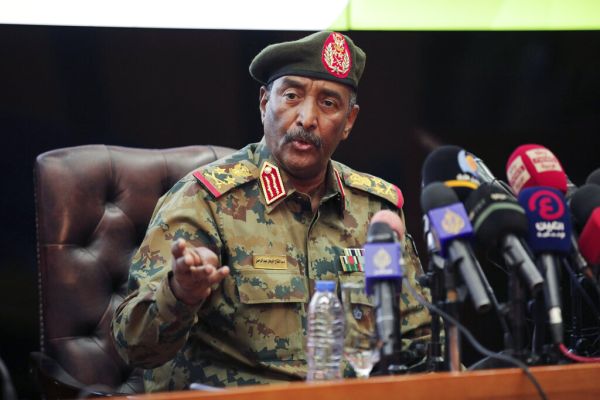A decade ago, the idea of pulling Sudan out of Iran’s orbit was a fantasy.
By Pesach Benson, United With Israel
For anyone reading the tea leaves of the Middle East, Sudan’s military leader praised his country’s security and intelligence ties with Israel during an interview on state-run TV on Saturday.
In remarks aired nation-wide, Gen. Abdel-Fattah Burhan, head of Sudan’s ruling Sovereign Council, said the exchange of intelligence with Israel has enabled the northeast African nation to dismantle and arrest suspected terror groups that “could have undermined the security of Sudan and the region.”
Sudan signed the Abraham accords in January 2021 as part of an arrangement with the U.S. to get itself removed from a list of countries designated as state sponsors of terror. But unlike the United Arab Emirates, Bahrain and Morocco, which have also joined the accords, Sudan has not made any moves to normalize ties, such as an exchange of embassies.
Burhan said it is legitimate for Sudanese security and intelligence agencies to have ties and exchange visits with Israel.
He also said that his country’s relations with Israel are not of a political nature, insisting — without elaborating — that no senior Sudanese official has yet made a visit to Israel.
At the time of the accords, Sudan was led jointly by Burhan with civilian Prime Minister Abdallah Hamdok. But in October, Burham seized power in a military coup. Israel has remained silent on the coup.
Sudanese and Israeli officials exchanged unannounced visits in recent weeks. Most recently, a Sudanese security delegation visited Tel Aviv last week, following a visit by Israeli officials, including Mossad intelligence officers, to Khartoum in January.
Sudan has been trying to reintegrate itself with the West following 30 years of repression and isolation under Omar Bashir, who allied Sudan with Iran.
During Bashir’s rule, Iranian weapons smuggled to Gaza terror groups passed through Sudan’s Red Sea ports and then over land towards the Sinai. A number of attacks between 2009-2012 on arms convoys in Sudan and a munitions factory south of Khartoum were widely attributed to the IDF. Israeli officials never commented, but it was widely believed that Israel was preventing long-range rockets from reaching Hamas.
Israeli leaders today take a similar approach with air strikes on Iranian targets in Syria.
Sudan was once one of Israel’s fiercest rivals in the Arab world. It hosted the landmark Arab conference after the 1967 Mideast war at which eight Arab countries vowed never to make peace with Israel.
Burhan’s coup triggered near-daily street protests, plunging Sudan further into turmoil. Security forces launched a deadly crackdown on protesters, killing around 80 people and wounding over 2,200 others injured since the coup, according to a Sudanese medical group.
A decade ago, pulling Sudan out of Iran’s orbit was a fantasy.
A Sudanese leader openly discussing security ties with Israel on national television is no small matter.
Associated Press contributed to this report.
